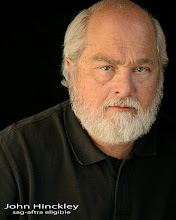Recently I watched "Call Northside 777". In the film Jimmy Stewart portrays a newspaper reporter who’s assigned to follow up on an ad in the personals section of his newspaper. The mother of a convicted cop killer is offering a reward for information that proves her son is not guilty. Initially Stewart patronizes the old woman and is very cynical. Talking to her is a chore. Only after his assignment editor forces him to interview the convicted killer in prison does he slowly begin to change his mind about the whole situation. Stewart goes after each lead with energy and tenacity in spite of roadblocks at every turn. In the end, Stewart and the paper prove the man’s innocence and he’s released.
The film is based on a true story. Both in the film and in real life the paper put its reputation on the line by championing an unpopular position. They sought out and fought for the truth. The paper used its lawyers, influence and political capital to right a wrong. I think at one time most newspapers and other news organizations were interested in the truth. Reporters investigated tips, followed up on leads and reported the news. The truth mattered. The truth wasn’t subordinate to the popularity of the position. Editors were principled and fought for values.
Sadly it seems far too many members of the press today are satisfied to merely sit by the fax machine or wait for the latest press release to show up in the inbox of their email account. They’ve become echo chambers of each other; they’re repeaters, not reporters.
In far too many cases, objectivity is a casualty in the war of what passes for journalism in early 21st century America. Statements from reporters such as Chris Mathews of MSNBC when he said, "I felt this thrill going up my leg" while covering one of the presidential debates in 2008 and Newsweek’s Managing Editor Evan Thomas deifying President Obama when he said, "in a way, Obama’s standing above the country, above the world. He’s sort of God. He’s going to bring all different sides together." are too common.
And now we have a reporter advocating voter fraud. During his radio show last week MSNBC’s Ed Schultz commenting on the special election in Massachusetts to fill the late Senator Kennedy’s seat stated, "I tell you what, if I lived in Massachusetts I'd try to vote 10 times. I don't know if they'd let me or not, but I'd try to. Yeah, that's right. I'd cheat to keep these bastards out. I would. 'Cause that's exactly what they are."
Many newspapers and television network news programs are losing circulation and ratings. They’re explaining their losses by blaming the Internet. The answer to their ratings and circulation problem can be found in a quote from the late CBS news reporter and journalist Edward R. Murrow when he said, "To be persuasive we must be believable; to be believable we must be credible; credible we must be truthful."
What a concept, truth and objectivity in the news.
Subscribe to:
Post Comments (Atom)

No comments:
Post a Comment